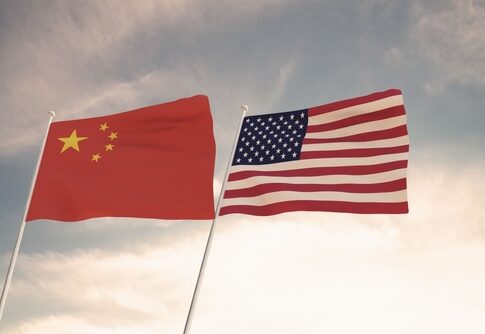The hidden costs behind China’s affordable goods are becoming increasingly apparent as human rights abuses cast shadows over international trade relations. This complex situation forces Americans to confront uncomfortable questions about personal responsibility in global commerce. What alternatives exist for consumers who wish to make more ethical purchasing decisions?
China’s Economic Power and Human Rights Concerns
China’s remarkable economic growth has positioned it as a global manufacturing powerhouse, offering competitively priced goods that American consumers eagerly purchase. The Chinese government actively courts foreign investment while simultaneously implementing restrictive policies that create uneven playing fields for non-Chinese businesses.
Behind these economic achievements lies a troubling human rights record, particularly regarding the treatment of Uyghur Muslims in Xinjiang province. The Office of the UN High Commissioner for Human Rights concluded that violations in the region “may constitute international crimes, in particular crimes against humanity,” highlighting the severe ethical concerns that accompany trade with China.
It was the plan all along! pic.twitter.com/UIlCaQxshe
— Joshua Philipp (@JoshJPhilipp) April 9, 2025
Navigating Business Risks and Legal Challenges
American companies doing business in China face increasing regulatory hurdles, including the 2021 Foreign Investment Screening Mechanism and the controversial Anti-Foreign Sanctions Law. These laws give Chinese authorities broad powers to penalize foreign entities deemed to act against China’s interests, creating significant uncertainty for U.S. businesses operating in the region.
The Chinese Communist Party maintains tight control over economic policy and business regulations, with the Politburo Standing Committee making final decisions on matters affecting foreign companies. Foreign nationals involved in business disputes may face unexpected travel bans, preventing them from leaving China until matters are resolved according to Chinese authorities.
.@JoshJPhilipp exposes why the CCP's egregious human rights abuses—like forced organ harvesting—go unnoticed.
"Look at some of the biggest investors for New York Times, for example. Almost all of them are heavily invested in China." pic.twitter.com/yxnD4hm9XF
— EpochTV (@EpochTV) March 14, 2025
Consumer Responsibility and Ethical Alternatives
American consumers face difficult choices when balancing affordability against ethical concerns in their purchasing decisions. Companies with supply chain links to Xinjiang face significant reputational, economic, and legal risks due to documented forced labor programs, yet many continue operations due to cost advantages.
The U.S. government has implemented measures to prevent American organizations from being complicit in human rights violations, though enforcement presents ongoing challenges. Consumer awareness and demand for ethical sourcing represent perhaps the most effective pathway to meaningful change, as market forces ultimately respond to customer priorities.
Businesses seeking to maintain access to Chinese markets while upholding ethical standards must conduct thorough due diligence and maintain transparent supply chains. The growing movement toward ethical consumerism suggests Americans may increasingly prioritize human rights over minor cost savings, potentially reshaping global trade relationships in the coming years.

